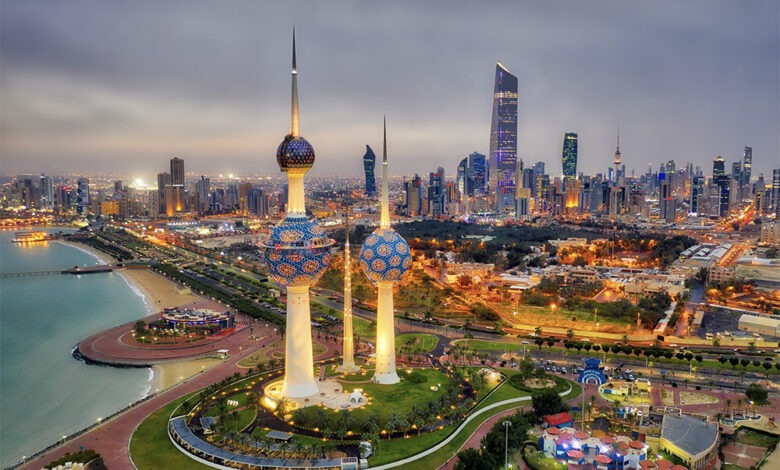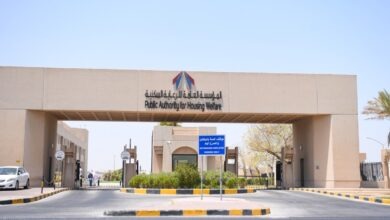Private Sector: Engine of Innovation and Diversification
Building the Future: Kuwait’s Resilient Path to Vision 2035 - Part: 3


By Sarah Al Sabah
Special to The Times Kuwait
Our region faces a confluence of challenges that feel both heavy and defining, from geopolitical tensions to a deepening climate emergency and the ever-evolving technological advancements. These pressures impact us in real-time. Just this May, an unprecedented early heatwave sent temperatures soaring to 48°C, pushing Kuwait’s power grid to its limits and forcing emergency outages. Such climate extremes underscore how vital national preparedness has become. Yet Kuwait has weathered storms before, both literal and figurative, and emerged stronger. Today, the call is to stay the course on our Vision 2035 transformation, using resilience and innovation to turn turbulence into opportunity.
Vision 2035, also known as New Kuwait, is our blueprint for a thriving future. It aspires to transform Kuwait into a diversified, sustainable economy and a regional financial and commercial hub led by a dynamic private sector. Crucially, this vision is not just about buildings and budgets; it is about people and purpose. National resilience in uncertain times means investing in our human capital, strengthening social cohesion, and thinking decades ahead. In a time of regional uncertainty, climate pressure, and rapid technological change, staying the course on long-term reforms and innovation is more important than ever.
In Part 1 and 2 of this 4-part series we examined how building a resilient path to Vision 2035 and the future of Kuwait needs to harness the full strength of society in its entirety, its grassroots energy and civic participation, including its youth and women and civil society. This week we look at the third component in the social engagement needed for Kuwait to remain future-ready in the face of global disruptions, the private sector.
Private Sector: Engine of Innovation and Diversification: No discussion of Kuwait’s future-readiness is complete without the private sector. Entrepreneurs, businesses, and investors who will fuel the engine of growth towards the road to ‘New Kuwait’. Vision 2035 envisions a profound shift where the private sector leads the economy and drives job creation, under the umbrella of a supportive public sector that safeguards social values and identity.
In practical terms, this means reducing our historic over reliance on oil revenues and a bloated public sector. Instead, we cultivate a dynamic, competitive business environment. The goal is nurturing Kuwaiti small businesses and start-ups, attracting foreign investment in new industries, and empowering the private sector to innovate solutions to national challenges.
Progress on this front is tangible. A fundamental pillar of the 2035 plan is to diversify Kuwait’s economy away from oil, which currently still accounts for roughly 90–95 percent of exports. For years, Kuwait lagged behind GCC neighbors in its diversification efforts and renewable energy investment. This is changing. The government is investing in emerging sectors like information technology, finance, logistics, and clean energy. These areas are poised to create high-skill jobs for Kuwaitis and buffer the economy against oil price swings. By 2030, Kuwait aims to have over 22,000 MW of renewable energy capacity, signaling an unprecedented push into solar and wind power.
Meanwhile, new economic zones regulated by the Kuwait Direct Investment Promotion Authority (KDIPA) and fresh incentives for foreign investors are laying the groundwork for a more diversified, private-sector-led growth model. These zones are expected to generate new industries and employment opportunities. Opportunities that range from high-tech manufacturing to green technology, thus enhancing long-term economic stability. Every dollar of non-oil revenue earned, and every private-sector job created is a step toward greater national resilience.
Kuwait’s private sector is not only an economic actor but also a partner in innovation and social progress. Our leading companies are increasingly embracing sustainability and community engagement as part of their business ethos. For instance, Kuwaiti telecom and finance firms are investing in local start-ups and digital infrastructure, accelerating the country’s tech transformation. Major corporations like Zain have dedicated substantial resources to youth development programs (as mentioned earlier) and to fostering entrepreneurship ecosystems.
The Kuwait Investment Authority, our sovereign wealth fund, has modernized its IT and cybersecurity systems to be a model of efficiency and innovation in finance. Even in traditionally state-dominated sectors like energy, we see pockets of excellence: the Kuwait Integrated Petroleum Industries Company (KIPIC), established in 2016, prides itself on a ‘pro-youth culture’ that pushes creativity and open data, leveraging young talent to drive innovation in oil and gas. Such examples show that even legacy sectors can reinvent themselves by empowering young professionals and adopting global best practices.
To truly unleash the private sector’s potential, Kuwait is pursuing regulatory and fiscal reforms aimed at improving the business climate. Efforts to streamline business licensing, enforce transparency, and combat corruption are underway. Entrepreneurs thrive where bureaucracy and red tape are minimized. The government is also promoting Public-Private Partnerships (PPPs) for infrastructure and utilities, an approach that has already seen success in the power sector.
In response to the power capacity crunch, Kuwait is inviting private investment and expertise to help build new power and renewable energy plants quickly. Upcoming projects like Al-Dabdaba solar park and phases of Al-Zour North power plant involve PPP models, which bring in efficiency and capital from the private sector while sharing risks. Such collaboration not only resolves immediate issues but also transfers know-how to Kuwaiti professionals and demonstrates the viability of PPPs in other areas.
Another critical dimension is the role of the private sector in the green transition. As the world moves toward a low-carbon future, Kuwaiti businesses must adapt or be left behind. Encouragingly, a recent survey and report by the International Labor Organization and Kuwait Chamber of Commerce found that many Kuwaiti companies see opportunity in a ‘just transition’ to a greener economy, and they emphasize the need for clear policies to guide this shift.
The private sector can contribute to Kuwait’s climate goals by adopting cleaner processes, investing in sustainable technologies, and creating ‘green jobs’ for Kuwaitis. Every solar panel installed by a local firm, every electric vehicle adopted into a corporate fleet, every eco-friendly startup funded are actions that help Kuwait prepare for a post-oil era and make our economy more competitive internationally.
Notably, Kuwait’s commitment to net-zero emissions in the oil and gas sector by 2050 and economy-wide by 2060 will require immense innovation that only the private sector can deliver at scale. Far from being a burden, this transition is a chance for Kuwaiti companies to pioneer new industries like hydrogen fuel, clean cooling technologies, waste-to-energy, and export their expertise.
An empowered private sector means a resilient nation. The private sector creates jobs for our youth, drives the innovation needed to solve national problems, and generates wealth that can be reinvested into our society. Vision 2035 explicitly calls for the private sector to be the ‘primary engine of growth’, recognizing that sustainable prosperity must be built on entrepreneurship and enterprise. By staying committed to economic reform and by fostering a culture of innovation in business, Kuwait is steadily moving toward that goal. The journey is not without obstacles. We still have bureaucratic hurdles to clear and a mindset to transform. Still, the momentum is real.
As we look to the future, public and private leaders alike must keep collaboration at the forefront: government setting the vision and level playing field, and businesses bringing solutions and agility. Together, they can diversify our economy in ways that make Kuwait more secure and less subject to the whims of global markets.
[Next week, in the concluding part of Building the Future Kuwait, we emphasize the need to stay the course to realize Vision 2035 with a call to action-Ed]
Editor’s Note: This timely op-ed offers a compelling perspective on Kuwait’s resilience in the face of regional and global challenges. By blending strategic policy analysis with a human-centered narrative, the article speaks to both decision-makers and the general public. The article effectively links Vision 2035 objectives to current events and calls for inclusive participation from all sectors of society. Its emphasis on youth empowerment, women’s leadership, and private sector innovation makes it highly relevant for ongoing national conversations about reform, sustainability, and Kuwait’s role in the Gulf and the world. The piece is recommended for publication as part of The Times Kuwait’s ongoing series on Vision 2035 and national development.












